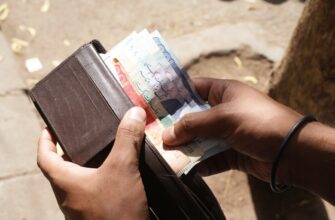- Why Kenya Needs Specialized Bitcoin Wallets
- Critical Factors for Kenyan Bitcoin Wallets
- Top 5 Bitcoin Wallets for Kenyan Users
- 1. Paxful Wallet
- 2. Binance
- 3. Trust Wallet
- 4. Coinbase Wallet
- 5. Exodus
- Setting Up Your Wallet in Kenya: Quick Guide
- Security Essentials for Kenyan Crypto Users
- FAQ: Bitcoin Wallets in Kenya
- Final Verdict
Why Kenya Needs Specialized Bitcoin Wallets
Kenya stands at the forefront of Africa’s crypto revolution, with over 4 million users embracing digital currencies. Choosing the best Bitcoin wallet for Kenya isn’t just about security—it’s about finding solutions tailored to local challenges like M-PESA integration, low-data accessibility, and regulatory compliance. Your wallet is your financial fortress; pick wisely.
Critical Factors for Kenyan Bitcoin Wallets
When evaluating wallets, Kenyan users should prioritize:
- M-PESA Compatibility: Seamless KES deposits/withdrawals
- Low Data Usage: Lightweight apps for limited connectivity
- Regulatory Alignment: Adherence to Central Bank of Kenya guidelines
- P2P Support: Direct trades to avoid high exchange fees
- Security Layers: 2FA, biometric locks, and self-custody options
Top 5 Bitcoin Wallets for Kenyan Users
1. Paxful Wallet
Built for Africa’s P2P ecosystem, Paxful integrates M-PESA directly into its non-custodial wallet.
- Pros: Zero trading fees for Kenyans, 300+ payment methods, Swahili support
- Cons: Basic interface, limited altcoin support
2. Binance
Global giant with dedicated Kenyan shilling (KES) gateways via P2P marketplace.
- Pros: Lowest fees (0.1%), staking rewards, 500+ coins
- Cons: Complex for beginners, regulatory scrutiny
3. Trust Wallet
Binance-owned mobile wallet with robust DeFi access. Ideal for smartphone users.
- Pros: 10M+ blockchains supported, in-app staking, 5MB app size
- Cons: No direct M-PESA integration
4. Coinbase Wallet
US-based but Kenya-friendly self-custody option with top-tier security.
- Pros: Insured assets, NFT support, intuitive design
- Cons: Higher gas fees, limited P2P options
5. Exodus
Desktop-focused wallet with Kenyan shilling price tracking.
- Pros: Built-in exchange, 24/7 support, portfolio charts
- Cons: No M-PESA, exchange fees up to 5%
Setting Up Your Wallet in Kenya: Quick Guide
- Download from official app stores only
- Enable biometric authentication immediately
- Connect M-PESA via P2P platforms like Binance or Paxful
- Start with small test transactions
- Backup recovery phrases offline (never digital)
Security Essentials for Kenyan Crypto Users
- Verify wallet addresses via QR codes to avoid scams
- Use hardware wallets like Ledger for large holdings
- Enable transaction whitelisting
- Update apps weekly
- Never share seed phrases—even with “support” agents
FAQ: Bitcoin Wallets in Kenya
Q: Is Bitcoin legal in Kenya?
A: Yes! While unregulated, Bitcoin isn’t illegal. The Central Bank advises caution but permits usage.
Q: Can I buy Bitcoin directly with M-PESA?
A: Not natively. Use P2P exchanges like Binance or Paxful to convert M-PESA to BTC.
Q: Which wallet is safest for large amounts?
A: Hardware wallets (e.g., Ledger) paired with Exodus or Trust Wallet for transactions.
Q: Are Kenyan Bitcoin profits taxable?
A: Currently no specific crypto tax laws, but income tax may apply to trading gains.
Q: How fast are Bitcoin transactions in Kenya?
A: Typically 10-30 minutes. Fees vary—use wallets with adjustable transaction speeds.
Final Verdict
For most Kenyans, Paxful Wallet offers the smoothest M-PESA integration, while Binance dominates for active traders. Newcomers should start with Trust Wallet’s user-friendly design. Remember: Security trumps convenience. Diversify holdings across 2+ wallets, and never invest more than you can afford to lose as Kenya’s crypto landscape evolves.








